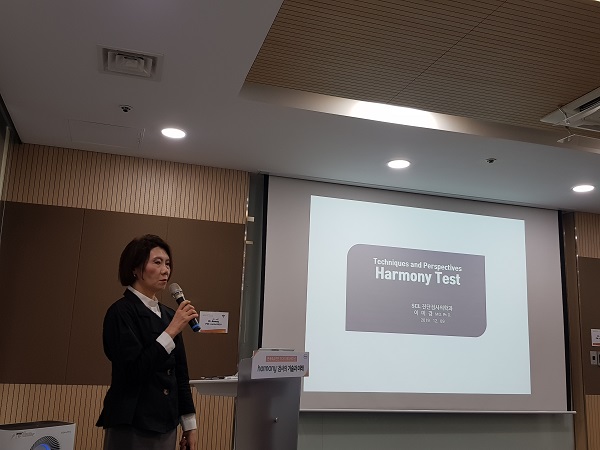Roche Diagnostics Korea said it would promote the use of a non-invasive prenatal test (NIPT) in Korea.
The company introduced its NIPT, called Harmony, in 2016 in the local market. The company used to utilize the “test and send out” (TSO) method to send extracted samples to U.S. test institutions and receive results. However, the company will directly conduct the NIPT in Korea, it said.

To do so, Roche Diagnostics Korea provided equipment at Seoul Clinical Laboratories and verified the accuracy of the test. Directly testing Harmony, rather than using the TSO method, will shorten the period between testing and confirming results, the company said.
Roche Diagnostics Korea held a news conference to introduce Harmony’s techniques and prospects in Seoul, on Monday.
As the number of aging mothers is increasing, they are paying keen attention to prenatal testing. NIPT, which is known to have secured accuracy and safety, is also drawing attention.
NIPT detects chromosomal abnormalities in trisomy diseases (Down syndrome, Edwards syndrome, Patau syndrome) by extracting the fetal DNA from the mother's blood. Since it can be performed from the 10th week of pregnancy, it has the advantage of identifying the trisomy and genetic diseases of the fetus from the beginning of pregnancy.
The test is not invasive, unlike chorionic villi sampling or amniotic fluid testing, and shows high accuracy.
The Korean Society of Maternal Fetal Medicine said in its recent guideline that doctors can provide NIPT information for all pregnant women and recommend it to a high-risk group such as aged pregnant women first.
The American College of Medical Genetics and Genomics also recommends NIPT for all pregnant women, saying it is the most sensitive screening test for trisomy diseases.
Roche Diagnostics Korea said its product Harmony demonstrated superior Down syndrome positive predictive value, sensitivity, and false-positive rate, compared to the nuchal translucency test, also called FTS (First Trimester Screening).
“Harmony’s strength is that it proved accuracy and safety through unique technology and extensive research,” said Lee Mi-kyeong, vice director of Seoul Clinical Laboratories. “False-positive rates are especially important in prenatal tests. Once positive, the pregnant woman must receive an invasive test. This can not only cause an extra cost but may affect the mother and the fetus.”
The Harmony test proved its accuracy in a clinical study of over 218,000 samples in 59 papers. A study of 22,000 mothers of all ages showed a lower false-positive rate of less than 0.1 percent for Down syndrome, Edward syndrome, and Patau syndrome.

